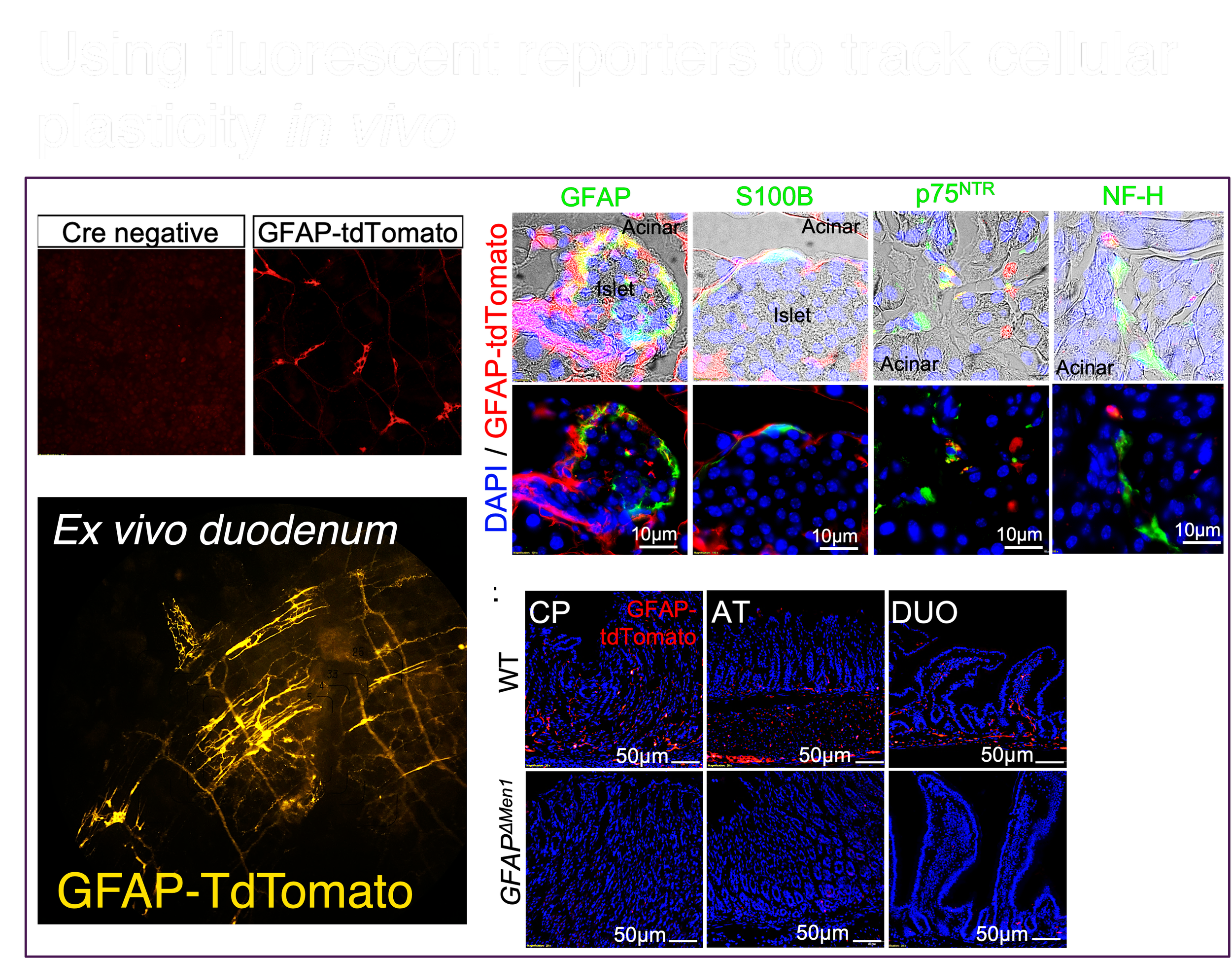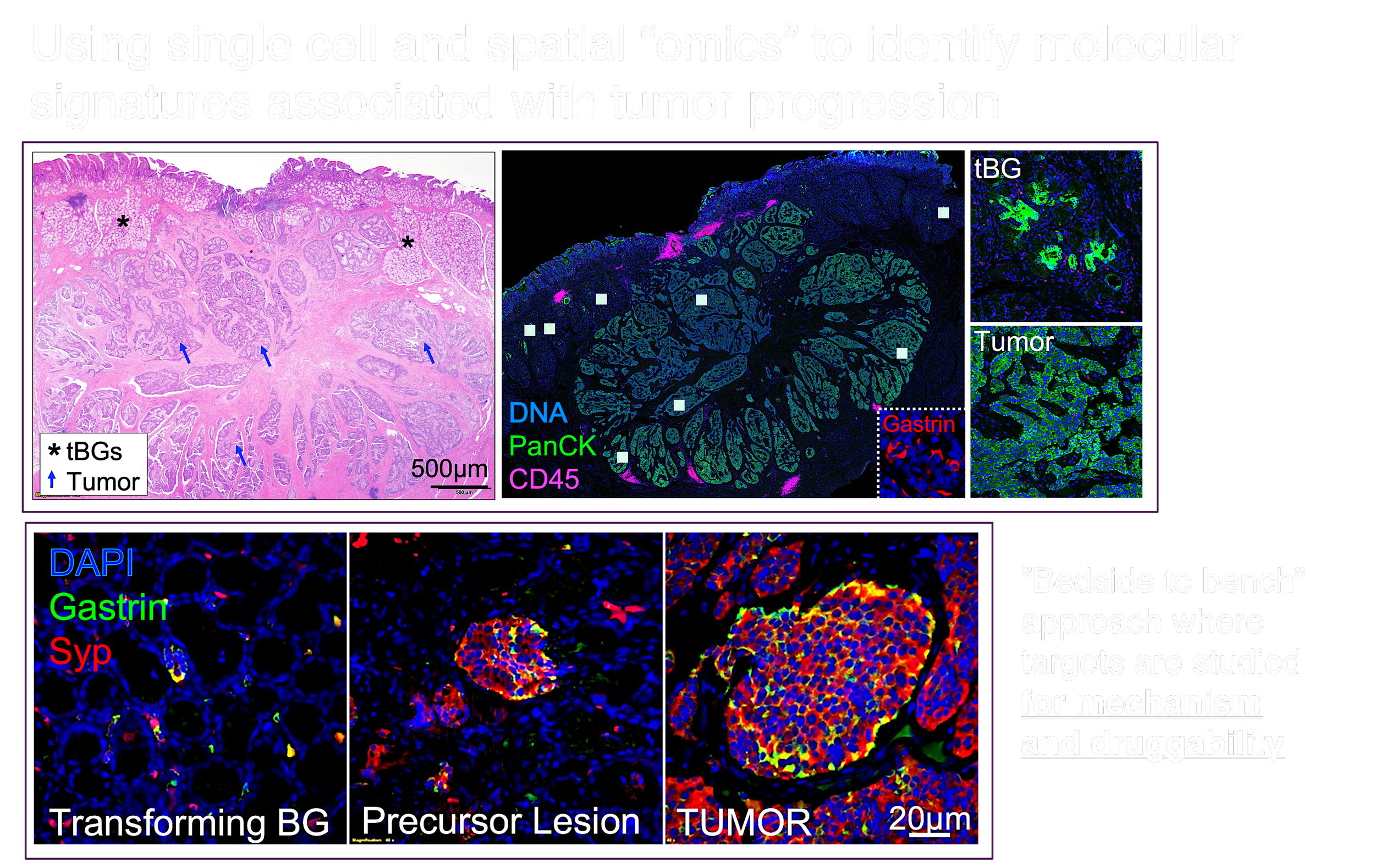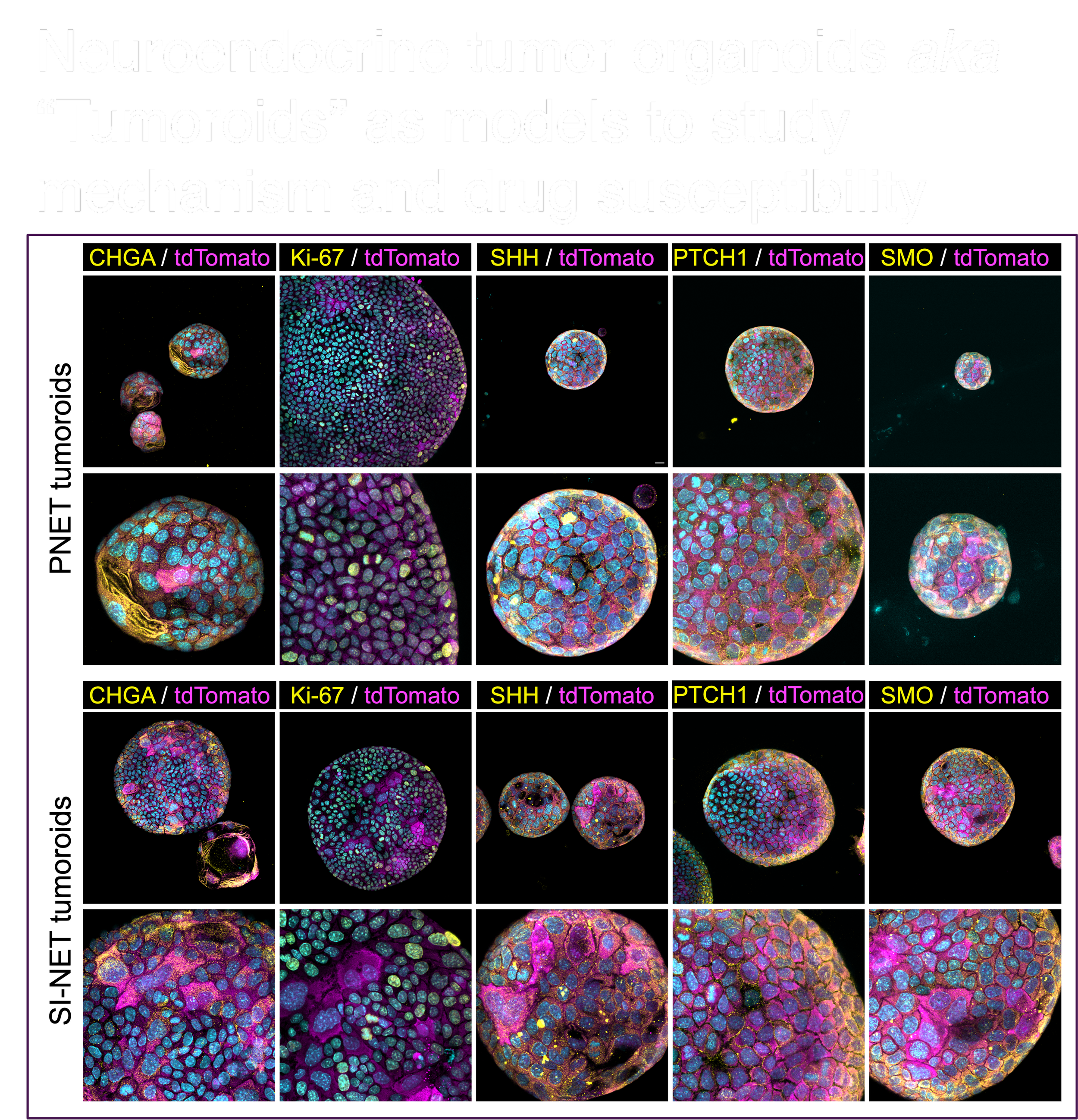
The Duan Lab is interested in expanding our understanding of how cells shift their developmental trajectory and acquire a diseased state, particularly within the context of cancer. Our primary focus is to identify how certain mutational and non-mutational events can cause normal cells to acquire a neoplastic phenotype by “hijacking” their cellular fate. A fundamental question that we aim to address is “how do transcriptional and epigenetic changes drive cellular reprogramming and cancer cell lineage plasticity?”
Building from prior work, the Duan Lab is currently working on understanding how changes in enteric glial cell identity contribute to the development of neuroendocrine cancers in the GI tract. These cancers, called gastroenteropancreatic neuroendocrine tumors or neoplasms (GEP-NETs/NENs) carry neuronal and endocrine features and display remarkable cellular, molecular, and epigenetic heterogeneity. Using a combination of novel transgenic models, 3-D tumor organoid culture systems, and state-of-the-art sequencing technologies, we aim to elucidate the underlying etiology of these neoplasms and identify new signaling targets for therapeutic intervention. Our group is highly motivated to apply these discoveries to other types of cancers for which the cell(s) of origin remain uncertain. Ultimately, we strive to translate our research to human patients and improve disease outcomes by identifying new treatment strategies and biomarkers for early diagnosis.


